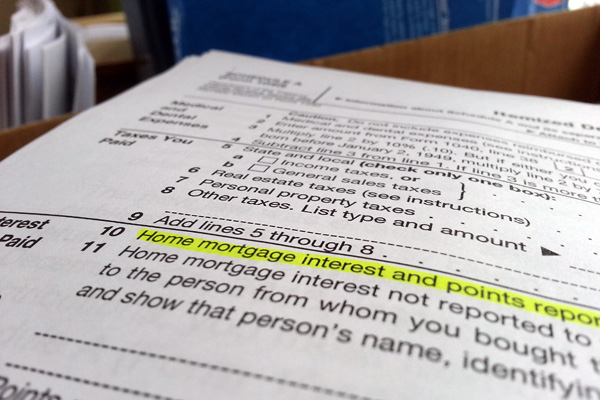Athena Real Estate is proud to support Elevate USA – New Orleans. Lauren Crain, Claudine Christiansen, and Pete Tafaro had the opportunity to meet with the kids, staff, and volunteers. If you are unfamiliar with Elevate, please take a moment to learn about this local organization. The group’s mission is to elevate the life skills and abilities of inner-city student-athletes through mentor-based programs in athletic, academic, and social development. Since 2008, the ELEVATE Leadership Program has sent 100% of alumni to college on partial or full scholarships.
Athena proudly raised funds for this group so that they can continue to positively impact the lives of these children. To truly be the best realtors in New Orleans, Athena believes that we must also give back to the community.
Author: Athena Real Estate
Real Estate Listing Previews: When It Might Be Too Soon for the “Coming Soon”
We’ve all seen it. A real estate agent, eager to promote a new listing, proudly announces on social media that the listing is “coming soon.” When used appropriately, good “coming soon” announcements can be effective. Potential buyers are intrigued at the possibility of beating a listing to the market. Like a movie teaser trailer, a “coming soon” announcement can plant the seed of curiosity that might blossom into an offer.
However, preview listings also present hazards for real estate agents and their clients. In addition to running afoul of state and local laws and regulations and the rules governing realtors, a preview listing might not be in the client’s best interest. An agent, overzealous for a full commission, might push the preview listing a bit too hard to quickly snatch an unrepresented buyer and cut another agent out of the deal. When this thwarts the client’s opportunity to fetch a higher sales price through a fully marketed listing, the preview listing serves only the agent’s needs — not the client’s.
Striking a balance between the interests of the agent and client might be delicate in this context, but the rules governing preview listings are not so complicated:
- Owner authorization is required. Under Louisiana law, agents cannot market a property without first obtaining written authorization:
No broker or licensee sponsored by said broker shall in any way advertise property belonging to other persons as being for sale or rent or place a sign on any such property offering the property for sale or rent without first obtaining the written authorization to do so by all owners of the property or their authorized attorney in fact.
This effectively requires the agent to have a signed listing agreement before marketing the preview listing. In addition, as with all real estate advertisements, the preview listing must be done in the name under which the agent’s broker does business and under the broker’s supervision.
- Realtors must post listings on the MLS in a timely manner. The rules governing realtors often require listings to be posted on the multiple listing service within a certain time after the client signs a listing agreement or the listing otherwise becomes “effective.” Under New Orleans rules, for instance, listings must be posted within 72 hours of the effective date of the listing.
- The agent’s interests must not be put above the client’s. Agents owe a fiduciary duty to put their clients’ interests first. If the “coming soon” announcement is used to “hook” a dual agency — and a higher commission for the agent — at the expense of the client, the agent has breached his or her fiduciary duty.
In short, “coming soon” listing announcements are a good tool when used appropriately. Agents should take care to follow the rules of their local realtor associations — and the law — to avoid violating obligations to their clients.
At Athena, we always put our clients’ interests first — it’s in our culture. To learn more about Athena, call or email us. We’d love to hear from you.
Athena Supports Local Teams
Athena proudly sponsored the Purple Unicorns (ages 5-7) and the Thunderbolts (ages 7-8) this season at Lakeview Playground. Both teams improved dramatically under the guidance of great coaches. It was a fun season, and we were happy to support the kids.
At Athena, we believe that you can’t be the best real estate brokerage in New Orleans if you don’t give back to the communities that support our realtors, and we will continue to look for opportunities to give back. If you worked with one our agents and would like us to support your team, give us a call, and we will see if we can help!
Athena Supports Parents and Teachers with School Supply Giveaway
Athena is proud to announce its 2018 school supply giveaway promotion designed to support parents and teachers with the ever-increasing cost of school supplies.
For a chance to win, like the Athena Facebook page, share Athena’s Facebook page post on this promotion, and tag a parent or teacher in the comments. If you already liked our page, just tag someone and share the post — feel free to tag yourself! The winner will receive a $250 gift card for school supplies!
By the way, for those wondering why teachers are included, teachers often pay for classroom expenses out of their own pocket, and Athena wants to help!
The rules, terms, and conditions to our giveaway can be found below.
THE RULES.
How to Enter:
LIKE us on Facebook.
TAG someone in the comments that deserves the giveway.
SHARE our post.
Enter on our Facebook page: https://www.facebook.com/Athena-Real-Estate-1262526690438751/
If you have already liked our page, this step is complete, and you only need to tag someone and share our post to be entered.
You must be 18 years old to enter or have a parent or guardian’s permission.
You must be a legal resident of Louisiana (USA).
You must agree to the terms of these official rules.
Athena giveaway sweepstakes are not a solicitation for referrals or recommendations for its services. At Athena Real Estate, we believe in giving back to the community, and we create these giveaways solely for the benefit of others.
Official Rules:
NO PURCHASE IS NECESSARY TO ENTER OR WIN
Participation constitutes entrant’s full and unconditional agreement to and acceptance of these Official Rules. Athena giveaway sweepstakes submission period commences on the day of the post and ends at 11:59 PM (PST) on the expiration day listed in the post. The winner will be announced the following week. The contest program is sponsored by Athena Real Estate, which is located at 6050 Ponchartrain Blvd. Suite 200, New Orleans, La 70124.
Eligibility: Athena Real Estate giveaway sweepstakes (the “Promotion”) is open only to legal residents of the state of Louisiana who are 18 years of age or older or who has written consent from a parent or legal guardian. Entrants must also be a U.S. citizen who resides in Louisiana at the time of entry. Employees, contractors, directors and officers of Athena Real Estate (“Sponsor/Administrator”) and its respective parents, subsidiaries and affiliated companies, distributors, licensees and the advertising, fulfillment, judging and promotion agencies involved in the development and administration of this Promotion (collectively, “Promotion Parties”), and their immediate family members (parent, child, sibling and spouse of each) and those living in the same households of each are not eligible. Void elsewhere and where prohibited by law.
Promotion Period: The Promotion commences on the day of the post and ends at 11:59 PM (PST) on the expiration day listed in the post. The winner will be announced the following week.
How to Enter: (all entrants acknowledge their information will not be used or sold for other marketing or promotional purposes.)
During the Promotion Period, go to the Athena Real Estate Facebook page at https://www.facebook.com/Athena-Real-Estate-1262526690438751/ then Tag someone that deserves the giveaway. Entrants must like the Athena Facebook page, comment on a giveaway post and tag someone.
Entrants under 18 years of age at time of entry must have parent or guardian’s approval to enter contest. If it is discovered that approval was not granted, that entry will be disqualified or forfeited.
LIMIT ONE (1) ONLINE ENTRY PER PERSON.
Prize & Odds: One (1) winner will be randomly selected and will receive the prize, which is listed in the post. Prize winnings will be sent to the winner within 1-6 weeks after the Promotion Period ends. No substitution or transfer of prize is permitted except at Sponsor’s sole and absolute discretion. All taxes, and all other costs associated with acceptance or use of the prizes, are the sole responsibility of the winner. Arrangement for delivery of the prize will be performed after winner validation. Odds of winning the prize depend on the total number of entries received.
General Rules – Athena’s Giveaway sweepstakes – Summary of submission rules and guidelines:
All submissions must be entered during the official time frame of the Promotion to be eligible.
Comments must be Rated G and clean in topic. Sponsor reserves the right to remove and invalidate from this Promotion posts or comments that Sponsor determines in its sole discretion are inappropriate.
You must be 18 or older to participate or have written consent from a parent or legal guardian.
All federal, state and local laws apply. Winners will be notified through Facebook. Each potential winner may be required to sign and return an Affidavit of Eligibility and Release of Liability and a Publicity Release and an IRS W-9 form within ten (10) days of attempted delivery or prize will be forfeited. The return of any prize/prize notification as undeliverable or failure to respond to notices or return any documents in a timely manner, as determined by the Administrator, may result in disqualification and an alternate winner may be chosen. By participating, participants agree to release, discharge and hold harmless Promotion Parties from and against any and all liability or damages associated with this Promotion or acceptance, use or misuse of any prize received in this Promotion. Promotion Parties are not responsible for any typographical or other error in the printing of the offer or administration of the Promotion. Acceptance of prize constitutes permission for the Sponsor and their agencies to use winner’s names and likenesses for purposes of advertising and publicity without further compensation, unless prohibited by law. By participating in this Promotion, participants agree to be bound by the Official Rules and decisions of Athena Real Estate’s Management, which shall be final in all matters relating to the Promotion. Promotion Parties are not responsible for lost, late, misdirected, illegible, incomplete, non-delivered or postage-due mail; or for printing, distribution or production errors or for technical, hardware, software, or telephone malfunctions of any kind, lost or unavailable network connections, or failed, incorrect, incomplete, inaccurate, garbled or delayed electronic communications caused by the user or by any of the equipment or programming associated with or utilized in this Promotion, or by any human, or other error, which may occur in this Promotion. If, in the Administrator’s sole opinion, there is any suspected or actual evidence of tampering with any portion of the Promotion, or if technical difficulties compromise the integrity of the Promotion, the Athena Real Estate’s Management reserves the right to void suspect entries and/or modify and/or suspend and/or terminate the Promotion and/or conduct a random drawing to award the prizes in a manner deemed appropriate by the Administrator. In the event of a dispute regarding the identity of the person submitting an entry, entries will be declared made by the name appearing on the online entry. Sponsor reserves the right to disqualify any individual who tampers with the Promotion or acts in a disruptive manner. This Promotion is offered only in the United States and is governed by the laws of the state of Louisiana. By entering, entrants irrevocably consent to the sole and exclusive jurisdiction of the courts of the state of Louisiana located in Jefferson Parish for any action, suit or proceeding arising out of or relating to this Promotion.
Waiver: By participating in this Promotion, participant waives all rights to claim punitive, incidental and consequential damages, attorney’s fees or any damages other than actual out-of-pocket costs incurred to participate. Each winner waives all rights and indemnify Sponsor against any loss or liability resulting from the Prize.
Winner’s name and photograph may be posted on Athena Real Estate’s Facebook page.
Sponsor: Athena Real Estate, which is located at 6050 Ponchartrain Blvd. Suite 200, New Orleans, La 70124.
Facebook is not a sponsor of the Athena Real Estate’s sweepstakes and any entrants agree to release Facebook from all liability related to the contest.
Athena Real Estate’s Management reserves the right to modify, change, or cancel this promotion at any time, without notice.
Disputes: Each entrant agrees that: (i) any and all disputes, claims and causes of action arising out of or connected with the Athena Real Estate Giveaway sweepstakes, or any prizes awarded shall be resolved through the sole and exclusive jurisdiction of the courts of the state of Louisiana located in Jefferson Parish shall be resolved individually, without resort to any form of class action, and exclusively by the United States District Court of Louisiana, or the appropriate Louisiana State Court located in Jefferson Parish, Louisiana; and (ii) any and all claims, judgments and awards shall be limited to actual out-of-pocket costs incurred, including costs associated with entering the Contest, or statutory damages, but in no event attorneys’ fees. All issues and questions concerning the construction, validity, interpretation and enforceability of the Official Rules, or the rights and obligations of the entrant and Sponsor in connection with the Sweepstakes, shall be governed by, and construed in accordance with, the laws of the state of Louisiana, without giving effect to any choice of law or conflict of law rules (whether of the state of Louisiana or any other jurisdiction), which would cause the application of the laws of any jurisdiction other than the state of Louisiana.
Athena Hosts a Crawfish Boil for Its Agents
We are already halfway through 2018 – time to celebrate the success of the best realtors in New Orleans. Athena believes it is important to spend time with these great agents and their families in a non-work setting, and no one complains about seafood and beer on a Sunday afternoon.
Five Best-Kept Secrets for Negotiating the Best Home-Buying Deal
For most of us, a home is the most expensive single asset we’ll ever purchase. Because home purchases are usually financed, purchase price differences can sometimes be hidden in what appears to be a minimal increased monthly note. But when it comes time to sell your home, having an additional 5%, 10% or more in equity translates into big money in your pocket. The best time to get that equity: when negotiating the purchase. Here are five of Athena’s best negotiation tactics for buying a home.
- Find out how much the seller paid for the home and the balance owed on a note.
Regardless of the market forces that may have affected the value of a house after the seller purchased it, the seller is likely convinced that the house is worth more — probably a good bit more — than the price he or she paid. The seller’s “bottom line” is driven by how much he or she “clears” after paying the balance on a mortgage note, commission, and closing costs. These factors — the seller’s purchase price and the mortgage note balance — will likely drive his or her flexibility in purchase-price negotiations. Before you invest a lot of time negotiating, learn what drives the seller’s decision-making process.
Your realtor should be able to provide you with the last purchase price of the home, particularly if the seller bought it through an agent. Otherwise, in most parishes in Louisiana, purchase-price information is published on the tax assessor’s website. The Orleans Parish tax assessor, for instance, offers a public database that lists the purchase price of houses, the names of current owners, and property tax information.
In contrast, the balance on a mortgage note is generally not public information. However, with a little detective work, you can usually “guesstimate” with fair accuracy.
If the seller took out a loan to purchase his or her house, the lender filed a mortgage in the public records. Ordinarily, this mortgage states the exact amount of the loan and includes a copy of the note, which states the interest rate. With this information — assuming regular payments — you can calculate the current balance.
But how do you get a copy of the mortgage papers? There is always the old-fashioned way: go to the Clerk of Court’s office in the parish in which the house is located and ask to see the records for the property (using its municipal address).
If you’re not inclined to spend a few hours sifting through public records, note that most clerks of court make their conveyance and mortgage records available online. To access the records, you will need to pay for an account, as well as for each page you want to print. If you are friends with an attorney, consider asking him or her to access the records for you.
- Find out why the seller is selling.
Any particular reason for selling can substantially drive how much of a “haircut” the seller is willing to accept off the listing price. A couple going through a divorce, for instance, likely has to sell quickly to avoid redundant housing expenses. On the other hand, an “empty nester” looking to downgrade may have little incentive to sell quickly (and may, in fact, resist selling the family home that invokes fond memories). Knowing why a seller wants or needs to sell can be invaluable in your purchase-price negotiations.
But how do you find out what drives the seller? In many situations, if you (or your agent) ask, the seller’s agent will tell you. A “broker’s open” is often a good opportunity for your agent to chat casually with the seller’s agent and conduct subtle fact-finding.
Otherwise, investigate online. A seller’s social media page often leaves “clues” as to his or her reasons for selling. Was there a recent death in the family? Is the seller moving for a new job? Did the seller have a new baby, necessitating a bigger pad? Learning the seller’s motivations — and potential time pressures — can help an informed buyer gauge how hard to push for a rock-bottom purchase price.
- Search for properties with multiple listing-price reductions.
Reducing a listing price several times — especially in rapid succession — is often a sign the seller is motivated to sell. To get the best deal, look for properties with multiple listing-price reductions. Also, agents for sellers willing to negotiate for a substantial “discount” on the listing price often leave clues for buyer agents in the listing of the property. A seller’s agent might remark, for instance, that the seller is “motivated” or that a buyer should “make an offer.” Unfortunately, these remarks are usually made only in the “agent remarks” section of the Multiple Listing Service, so you will have to ask your agent to specifically look for them.
- Don’t get into bidding wars. Just don’t.
When a seller aggressively prices an attractive property, buyers often get into a “multiple-offer” situation. When that happens, the seller’s agent frequently calls for the buyers’ “highest and best” offers. The seller then accepts the highest offer made, without countering.
Under these circumstances, buyers often adopt an auction mentality, wanting to “beat out” the competition. Because the property is viewed as “hot,” buyers are in danger of overvaluing it in their desire to win the auction. In our experience, multiple-offer situations often result in an overzealous buyer overpaying for the property. Don’t get into bidding wars.
- Negotiate in stages.
Any real estate transaction presents the opportunity to negotiate in multiple stages. Of course, the first stage involves offers and counteroffers for the purchase price. After that, property inspections may reveal defects in the property that allow for further negotiations and a purchase-price reduction. Likewise, if the property doesn’t appraise for the contract value, the seller would be hard-pressed not to reduce the price in accordance with the appraisal. Take advantage of such opportunities.
If you’d like to learn more about these and other strategies Athena’s highly trained agents use in representing buyers and sellers, give us a call or shoot us an email. We’d love to work with you.
Transferring Brokerages: Rules and Tools for Louisiana Real Estate Agents
Louisiana real estate agents considering a move to another real estate brokerage may find themselves intimidated by the process. With potentially numerous listing agreements in place, deals under contract, ongoing relationships with buyers, and contractual obligations to a current broker, there is certainly a lot to consider. But the logistics of a transfer—and the rules that govern—aren’t really as complicated as they may seem. This article will walk Louisiana real estate agents through the process of transferring to a new real estate broker.
What happens to my listing agreements?
Under Louisiana law, a listing agreement must be between a client and a broker—not an individual agent. In this regard, the Louisiana Real Estate Commission’s rules say:
Listings and other agreements for real estate brokerage services must be solicited under the name of the broker corporation or supervising broker. These agreements shall be signed by the broker or by a sponsored licensee acting under written authority of the sponsoring broker.
See LREC Rules and Regulations (“LREC Rules”), Ch. 18, §1801. Technically, what this means is that the brokerage has all rights to listing contracts and can prevent an agent from taking a listing with her.
In practice, however, many brokerages do not want to enforce listing agreements with clients who want to work with their agent—not the brokerage he happened to be with when signing the listing agreement. Reputable brokerages, therefore, ordinarily make it a policy that agents can “take their listings” with them if they decide to move to another Louisiana real estate brokerage. Athena Real Estate’s policy, for example, is generally that agents can take their listings with them if they leave the brokerage. (One exception is often for listings currently pending/under contract. Brokerages generally won’t allow agents to take those with them, so most agents choose to “close out” any pending deals before making a move.)
What do I tell my clients?
Even the most inflexible brokerages are often reluctant to enforce a listing agreement with a client who has expressed the desire to “stick with” his agent. Although clients are entitled to make such an assertion, agents must take care not to give a client advice on how to convince a brokerage to cancel a listing agreement. The LREC rules say agents basically cannot “coach” a client on how to “get out” of a listing agreement:
It is unlawful for any person, licensed or unlicensed, to interfere with the contractual relationship between a licensee or registrant and a client by counseling a client or another licensee or registrant on how to terminate or amend an existing contractual relationship between a licensee or registrant and a client. . . .
See La. Rev. Stat. § 37:1447(C)(2017).
But this provision does not prevent an agent from announcing to clients the agent is moving to a new brokerage. Indeed, it would be unprofessional for an agent to vanish without communicating a move to a new brokerage to a client. Such communication crosses the line, however, when the agent suggests ways to convince the existing brokerage to cancel a listing agreement.
What if I’m under contract and what if I signed a non-compete?
Many brokerages require that agents sign contracts with a defined term, often one year. Some of these contracts even include non-compete provisions that prevent an agent from working for any other brokerage in the area.
The enforceability—and application—of the period of time a contract requires an agent to stay with a particular brokerage will depend on the provisions of her contract. Often, contracts allow agents to cancel early “for cause”—meaning that the broker did not do what it said it would, as stated in the contract.
Some contracts go a step further than a basic “term” and include non-compete provisions. As such provisions are disfavored under Louisiana law, non-compete clauses in Louisiana brokerage contracts must strictly comply with certain statutory requirements.
First, the rules require that a non-compete provision in an agent’s contract be in bold faced letter of a font size of not less than 10-point type, and the provision must give the agent the right to “back out” within three days of signing the contract:
[A non-compete provision in a real estate agent’s contract] shall be unenforceable and an absolute nullity unless the licensee shall have the right to rescind the non-compete agreement until midnight of the third business day following the execution of the non-compete agreement or the delivery of the agreement to the licensee, whichever is later. In any agreement between the broker and licensee, which includes a non-compete agreement, the non-compete agreement shall be prominently displayed in bold-faced block lettering of not less than ten-point type.
See La. Rev. Stat. § 37:1448.1(A)(2017).
In addition, the general non-compete statute in Louisiana, La. Rev. Stat. § 23:921, applies to agreements between real estate salespersons and brokers just like all other contracts. Under the statute, non-compete clauses are valid only if (1) the non-compete obligation is for a maximum of two years; (2) the provision specifies specific parishes in which the salesperson can’t compete, and (3) the broker who required the non-compete actually does business in the specified parishes.
If the non-compete agreement doesn’t comply with any of the foregoing, then it is completely unenforceable. Even so, before assuming your broker won’t enforce a non-compete, it often makes sense just to ask. Even if unwilling to allow an agent to entirely “walk” from a non-compete obligation, a broker may be willing to negotiate for an early departure on certain terms.
Logistics – what paperwork do I need to file to get my Louisiana real estate license transferred to a new broker?
The paperwork required to transfer a Louisiana salesperson’s license to a new brokerage is relatively basic. An agent just needs to file two forms (both available on the LREC web site):
- Termination of Sponsorship Form. This form must either be signed by the existing broker, or the agent must send the LREC a copy of proof that notice was sent to her existing broker by registered or certified mail. In either case, the form must be returned to the LREC within five days of when it is signed.
- Request to Transfer License to New Broker Form. This form must be signed by the agent AND the new broker.
In addition, there is a $35 fee for transferring to a new broker. If you are considering making a transfer, ask your new broker if they will send you copies of the forms to sign electronically. The broker might even pay the transfer fee for you. Athena does.
Conclusion
For most, the prospect of change can cause unease. But often a move away from a stale, stodgy operation to a fresh, enlivened one can be invigorating. Of course, in the end, everyone’s situation is different, and only you can decide if—and when—a move is right for you. It certainly takes courage to step out of your comfort zone, even if you know it will be for the best long-term.
At Athena, we understand how intimidating a move to a new broker can seem. So we do everything we can to make the transition as smooth and seamless as possible. Run by a pair of corporate attorneys, Athena provides helpful guidance on the paperwork and steps necessary to complete a transfer. And each lateral agent is assigned a transition team to help with preparing new marketing materials, developing a marketing plan, making announcements to existing clients, photo shoots, and other steps necessary to hit the ground running. Often, we may pay for the cost of replacement signs and materials, and for established agents we offer a sign-on bonus, in addition to the aggressive commission compensation structure we offer to all our agents.
Give us a call or send us an email if you want to learn more. We’d love to talk with you.
Papering the Deal: Record Keeping Requirements for Louisiana Real Estate Agents
As real estate agents, we know all too well about the mounds of disclosures, agreements, forms, and other documents used in our trade. It’s not unusual for a real estate deal to involve over a dozen documents, not to mention internal paperwork that a broker may require. But what documents are Louisiana agents required—by law—to keep, and for how long?
In 2017, the Louisiana Real Estate Commission (“LREC”) substantially expanded the obligation of brokers to maintain transaction-related and other documents for a period of five years. As brokers are now required to institute policies to ensure compliance with these provisions, the law will “trickle down” to agents to require that they maintain sufficient records.
Under the new LREC rules, brokers (and agents) must keep the following records for a period of not less than five years:
- disclosures;
- listing agreements, buyer representation agreements, other written agreements that authorize licensees to advertise or represent property for sale or lease, other written agreements that authorize licensees to receive compensation;
- contracts and related addenda;
- receipts and disbursements of compensation for services as defined under R.S. 37:1431(24) (i.e., those constituting “real estate activities”);
- property management agreements;
- appraisal, broker price opinions, and comparative market analyses;
- sponsorship agreements and termination paperwork; and
- independent contract agreements between brokers and sponsored salespersons.
See 46 LA AADC LXVII, § 1803.
While the rules do not require that they be kept electronically, records must be in a format “readily available” for the LREC. Documents kept scattered throughout emails and printed out likely would not be “readily available” under this provision, but hard copies kept in a file categorized by transaction likely would.
These rules were published in the Louisiana Administrative Code (and on the LREC’s web site) on May 20, 2017 and apply only going forward. For records kept before publication of the rule, the prior LREC rules would apply to basically require that agents maintain agency disclosure records and any records of compensation.
Athena recognizes that the new rules adopted by the LREC impose substantial additional requirements on agents that will make their jobs more difficult. That’s why we developed our Agent Dashboard system that allows agents to upload and track documents for each transaction, submit documents to Athena’s management, and even request payment of a commission check by ACH transfer.
To learn more about the technology Athena offers its agents and other support that sets us apart, give us a call or send us an email. We’d love to talk with you.
Negotiate Your Best House Buy
Keep your emotions in check and your eyes on the goal, and you’ll pay less when purchasing a home.
Buying a home can be emotional, but negotiating the price shouldn’t be. The key to saving money when purchasing a home is sticking to a plan during the turbulence of high-stakes negotiations. A real estate agent who represents you can guide you and offer you advice, but you are the one who must make the final decision during each round of offers and counter offers.
Here are six tips for negotiating the best price on a home.
1. Get prequalified for a mortgage
Getting prequalified for a mortgage proves to sellers that you’re serious about buying and capable of affording their home. That will push you to the head of the pack when sellers choose among offers; they’ll go with buyers who are a sure financial bet, not those whose financing could flop.
2. Ask questions
Ask your agent for information to help you understand the sellers’ financial position and motivation. Are they facing foreclosure or a short sale? Have they already purchased a home or relocated, which may make them eager to accept a lower price to avoid paying two mortgages? Has the home been on the market for a long time, or was it just listed? Have there been other offers? If so, why did they fall through? The more signs that sellers are eager to sell, the lower your offer can reasonably go.
3. Work back from a final price to determine your initial offer
Know in advance the most you’re willing to pay, and with your agent work back from that number to determine your initial offer, which can set the tone for the entire negotiation. A too-low bid may offend sellers emotionally invested in the sales price; a too-high bid may lead you to spend more than necessary to close the sale.
Work with your agent to evaluate the sellers’ motivation and comparable home sales to arrive at an initial offer that engages the sellers yet keeps money in your wallet.
4. Avoid contingencies
Sellers favor offers that leave little to chance. Keep your bid free of complicated contingencies, such as making the purchase conditional on the sale of your current home. Do keep contingencies for mortgage approval, home inspection, and environmental checks typical in your area, like radon.
5. Remain unemotional
Buying a home is a business transaction, and treating it that way helps you save money. Consider any movement by the sellers, however slight, a sign of interest, and keep negotiating.
Each time you make a concession, ask for one in return. If the sellers ask you to boost your price, ask them to contribute to closing costs or pay for a home warranty. If sellers won’t budge, make it clear you’re willing to walk away; they may get nervous and accept your offer.
6. Don’t let competition change your plan
Great homes and those competitively priced can draw multiple offers in any market. Don’t let competition propel you to go beyond your predetermined price or agree to concessions—such as waiving an inspection—that aren’t in your best interest.
Are Mortgage Points Tax Deductible?
When you took out a mortgage to buy your home, did you pay points? You may be able to deduct that prepaid interest on your federal tax return — but only if you meet a long list of rules.
The points you paid when you signed a mortgage to buy your home may help cut your federal tax bill. With points, sometimes called loan origination points or discount points, you make an upfront payment to get a particular rate from the lender.
Since mortgage interest is deductible, your points may be, too.
If you itemize your deductions on Schedule A of IRS Form 1040, you may be able to deduct all your points in the year you pay them.
Some high-income taxpayers have their total itemized deductions limited, including points. You can read more about that in the instructions for Schedule A.
Lucky for you, the IRS doesn’t care whether you or the homesellers paid the points. Either way, those points are your deduction, not the sellers’.
Tip: Tax law treats home purchase mortgage points differently from refinance mortgage points. Refinance loan points get deducted over the life of your loan. So if you paid $1,000 in points for a 10-year refinance, you’re entitled to deduct $100 per year on your Schedule A.
The Fine Print for Deducting Points
The IRS rules for deducting purchase mortgage points are straightforward, but lengthy. You must meet each of these seven tests to deduct the points in the year you pay them.
1. Your mortgage must be used to buy or build your primary residence, and the loan must be secured by that residence. Your primary home is the one you live in most of the time. As long as it has cooking equipment, a toilet, and you can sleep in it, your main residence can be a house, a trailer, or a boat.
Points paid on a second home have to be deducted over the life of your loan.
2. Paying points must be a customary business practice in your area. And the amount can’t exceed the percentage normally charged. If most people in your area pay one or two points, you can’t pay 10 points and then deduct them.
3. Your points have to be legitimate. You can’t have your lender label other things on your settlement statement, like appraisal fees, inspection fees, title fees, attorney fees, service fees, or property taxes as “points” and deduct them.
4. You have to use the cash method of accounting. That’s when you report your income to the IRS as it comes in and report your expenses when you pay them. Almost everybody uses this method for tax accounting.
5. You must pay the points directly. That is, you can’t have borrowed the funds from your lender to pay them. Any points paid by the seller are treated as being paid directly by you.
In addition, monies you pay, such as a downpayment or earnest money deposit, are considered monies out of your pocket that cover the points so long as they’re equal to or more than points. Say you put $10,000 down and pay $1,000 in points. The downpayment exceeds the points, so your points are covered and therefore you can deduct them if you itemize. If you were to put nothing down but you paid one point, that $1,000 wouldn’t be deductible.
6. Your points have to be calculated as a percentage of your mortgage. One point is 1% of your mortgage amount, so one point on a $100,000 mortgage is $1,000.
7. The points have to show up on your settlement disclosure statement as “points.” They might be listed as loan origination points or discount points.
Tip: You can also fully deduct points you pay (for the year paid) on a loan to improve your main home if you meet tests one through five above.
Where to Deduct Points
Figured out that your points are deductible? Here’s how you deduct them:
Your lender will send you a Form 1098. Look in Box 2 to find the points paid for your loan.
If you don’t get a Form 1098, look on the settlement disclosure you received at closing. The points will show up on that form in the sections detailing your costs or the sellers’ costs, depending on who paid the points.
Report your points on Schedule A of IRS Form 1040.
There are two things related to points that you can’t deduct:
1. Interest buy-downs your builder paid
Some builders put money in an escrow account (as a buyer incentive) that the lender taps each month to supplement your mortgage payment. Those aren’t considered points even though the money is used for an interest payment and it’s prepaid. You can’t deduct the money the builder put into that escrow account.
2. Interest payments from government programs
You can’t deduct points paid by a federal, state, or local program, such as the federal Hardest Hit Fund, to help you if you’re experiencing financial trouble.










